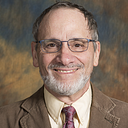Mendel Letters 96 — Community Organizing
September 24, 2022
Dear Mendel,
My involvement as a community organizer in the United Community Centers wasn’t your thing, but you were always supportive of my participation. I guess I was a little wild during my teen years and you felt my activities and relationships there gave me the purpose and discipline I would need in the future. You and mother came to some of our camp work weekends to help out and attended some of the Center’s community productions and once you won the Center’s World Series baseball pool. I don’t think you anticipated I would marry in the Center and remain active and raise my family there for the next three decades.
At City College I met a social worker named Joe who had worked at the United Community Center’s summer camp and with its teen programs. Joe challenged drug use and argued for interracial struggle and organizing working class people to oppose the war in Vietnam. The more I talked with Joe and the more I experienced the lack of direction of everyone else in the student protest movements, the more I was interested in his ideas. Joe and I decided to organize a campus political group at City College that was part of the community center. What impressed me about the UCC College group was that it had clear ideas at a time when everyone was fuzzy, it was connected to community people, it was interracial in a time of separatism, and it transcended college, it was the real world. Growing up in a Jewish area of the Bronx and attending overwhelmingly “white” schools, this was the first opportunity I had had to be related to Black people, really any people from backgrounds different from my own. These are experiences I have valued my entire life.
Working at the Center’s summer sleep away camp, Camp Hurley, is where I learned how to be a teacher. Campers used to plan the group program and morning planning sessions sitting on the logs used to devolve into arguments that tainted the entire day. I finally realized that the best way to plan was in the evening, at bedtime, when everyone was relaxed. We would layout the next day, hand in our program sheet at breakfast, and get started. The other thing that I learned was that the kids wanted me to be part of the group, an adult leader who was part of the team and not the “boss.” You had to be on the kids’ side, even when it meant butting heads with the camp administration. Structure and relationship have always been keys to my success as a teacher.
The older leadership of the Center came out of the 1930s left and the 1950s Civil Rights Movement. They were dedicated activists but also tended to be ideologically rigid. Their rigidity made them difficult to work with but also gave them the willpower to achieve sometimes amazing results. They were not afraid to organize in New York City housing projects, run street fairs in neighborhoods where other people were afraid to walk, or to work with youth that others would write-off. My wife directed the Center’s day care program that your grandson attended, I edited the Center’s community newspaper, and my step-daughters danced in the Center’s performing folk dance troop.
The Center became my extended family, which meant all of the tension that families have. The old guard was so committed to their “ideas” and belief that success was primarily based on willpower, that they were not good at evaluating what was going on around them, especially changing community demographics and needs. Their rigidity and what I considered my sense of reality became a frequent source of conflict but through it all I stayed, raised a family, and learned how to be a teacher and writer.
While the Center continues, I haven’t been part of it for a long time, but I remain an activist. I guess I am now the old guard who younger activists consider rigid and trapped in the past. I try to be supportive and not get in their way, something you did for me when I made my decisions back in the 1970s.
Your son
Hard copies of these typed letters were discovered in an old camp trunk in the basement storage facility of one of the few buildings that remain standing in this Brooklyn neighborhood. The building is quite decrepit and is scheduled for demolition. The letters were found in November 2048 by a teenager who believes they were written by his great-grandfather. The letters are addressed to Mendel, the letter writer’s father, who appears to have been dead for at least six years when his son, whose name we are unsure of, started to write him. The son appears very agitated in some of the letters. With permission from the family, we are publishing them on the date they were written, only 28 years later.
Follow Alan Singer on twitter at https://twitter.com/AlanJSinger1
